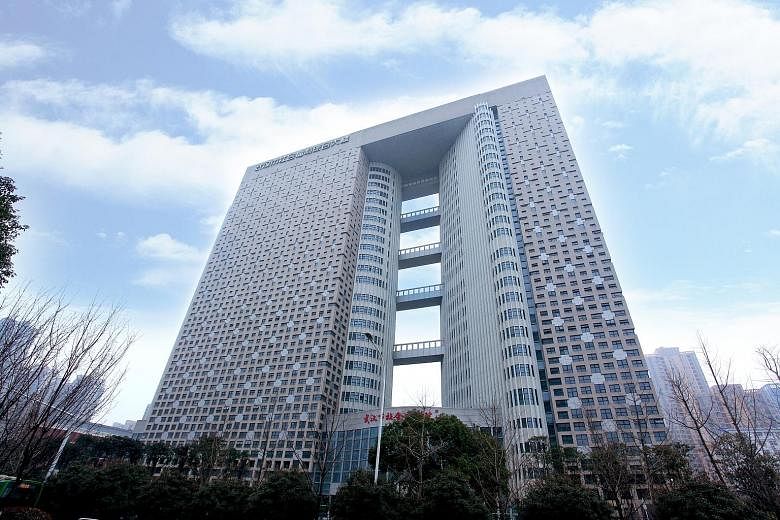Singapore-listed developer Perennial Real Estate Holdings has expanded its presence in China's healthcare industry with another eldercare project in central Hubei province.
The 1,077-bed project, comprising a nursing hospital and a retirement home, is based on a public-private partnership (PPP) with the Wuhan municipal government.
"The local government is very forward-looking," Perennial chief executive Pua Seck Guan told The Sunday Times in a phone interview after the signing ceremony in Wuhan last Thursday.
The government saw the demand for eldercare services and built Wuhan Social Welfare Institution, a twin-tower care centre, in the heart of Wuhan city, said Mr Pua.
"They had developed the hardware and decided to look for private players like us to come in to provide the software, to run the operations," he added.
-
Wuhan Social Welfare Institution
-
Completed last year, the Wuhan Social Welfare Institution is a twin-tower care centre built by the Wuhan Civil Affairs Bureau in the heart of Wuhan city, next to the Hankou high-speed railway station.
The government operates one tower that houses a 1,000-bed eldercare centre.
It provides low-cost services to people without social security and those with disabilities.
The other tower is a private eldercare and retirement home under a public-private partnership among Renshoutang, Wuhan-based Jointown Pharmaceutical Group and the Wuhan Municipal Government.
Renshoutang and Jointown Pharmaceutical hold a 90 per cent stake in the project, while the Wuhan government has a 10 per cent share. The total investment in the project is 123 million yuan (S$25 million) and the partnership will last for 25 years.
The 45,000 sq m private eldercare and retirement home has 876 beds for healthy seniors and 201 beds for seniors who require round-the-clock professional care. The beds are priced at 4,000 to 7,000 yuan (S$818 to S$1,432) a month, targeting the middle- and upper-income groups in the city.
It is slated to be fully operational by the end of this year.
He noted that given China's rapidly ageing population, many cities are ramping up eldercare capabilities. "This project is a good platform to show the other (local) governments this model of cooperation."
In China, more than 220 million people, comprising 16.1 per cent of the population, are over the age of 60.
According to a report by state-owned China Daily, 15.3 per cent of the elderly believe that they need to be taken care of, more than double the number in 2000.
A recent DBS report said the eldercare sector is one of the most dynamic areas within the healthcare industry awaiting investments. With the deeply rooted value of filial piety and a growing middle class in China, DBS predicts that demand for homes for the elderly and related services is set to take off in the next few decades.
This has already been observed by Perennial. It entered China's healthcare industry two years ago with a joint venture in hospital services. Among its various healthcare-related businesses, which also include maternity and child health centres, its eldercare business is the fastest growing.
Last September, the Singapore developer bought a 49.9 per cent stake in Shanghai RST Chinese Medical (Renshoutang), the largest private eldercare service provider in Shanghai, which operates 11 eldercare homes in the city.
Mr Pua said its associated company Renshoutang is securing a new project "every few weeks". Other than the Wuhan project, it has eight eldercare homes in the pipeline, mostly in and around Shanghai.
Besides providing management services as operators, Perennial also makes hardware investments in the form of integrated healthcare hubs in China. These will include hospitals, clinics, eldercare homes, hotels, serviced apartments, commercial offices and retail.
Its 280,000 sq m health and medical hub in south-western Chengdu city will start operations progressively from the third quarter of this year. A similar project is in the works in Xi'an, the capital city of central Shaanxi province, with several still under discussions with various local governments.
"Other than first-tier cities like Beijing, Shanghai and Guangzhou, our focus is on second-tier capital cities with good transport connectivity. These are the markets with a big population and consumers with growing spending power," said Mr Pua.

